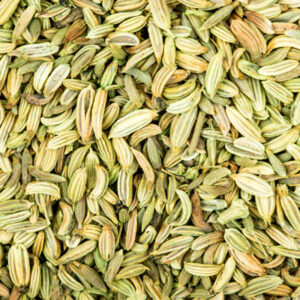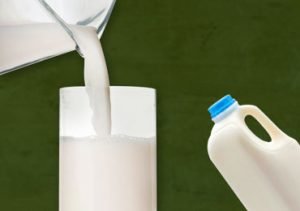Cornmeal is the flour made from dried corn. It is a popular ingredient in many cuisines and cultures across the world. In this article we will be exploring the health benefits of cornmeal for your skin, diabetes care and heart health management.
After the wheat crop failed in many countries people switched over to using cornmeal as a substitute. It can be used to make breakfast, lunch, dinner and in between dishes. Since it is whole grain there are a number of health benefits of cornmeal. It is a common pantry item and used in making a number of baked dishes too.
Properties of Cornmeal
- It is a complex carbohydrate grain. It contains good carbohydrates with fiber and a number of nutrients. Every 100 grams of cornmeal contains 7 grams of fiber and less than 1 gram of sugar. Hence it is ideal to use for people who want to lose weight.
- It is totally gluten free. Hence it can be used by people who have wheat allergies or the celiac disease. When these people consume wheat they end up with abdominal discomfort, pain and diarrhea. Such people can safely consume cornmeal since it can be used in the place of wheat.
- The nutrient dense cornmeal contains good amounts of vitamins and minerals. 100 grams of cornmeal contains 10 grams of proteins which consists of 18 essential amino acids. It also contains 127mg of magnesium and 241 mg of phosphorous. It also contains 287 mg of potassium, thiamin, vitamin A, vitamin E, vitamin B-6, vitamin K, folate, niacin and choline. It also has 5.88 grams of fat content. The whole thing amounts to about 384 kilocalories.
Some of the health benefits of cornmeal are listed below.
Health Benefits of Cornmeal
Before we discuss the benefits in detail you may love to watch this useful video on whether corn is healthy or not.
1. Provides for Good Skin and Vision
Beta carotene present in cornmeal gets converted to vitamin A in the body. Vitamin A is necessary for healthy skin, hair and strengthening of immune system. Beta carotene also acts as antioxidant. This helps in reduction of oxidative stress in the body thereby protecting against heart diseases and cancer.
2. Good for Digestion
Since cornmeal contains a good amount of fiber it alleviates symptoms of constipation. Thus diseases such as colorectal cancers and hemorrhoids are kept at bay. It also helps in reduction of colon related disorders. It maintains good digestive health since it is whole grain. It allows for easy bowel and peristaltic movements.
3. Provides for Healthy Vitamins
Vitamin B elements, that is thiamin and niacin is important for maintaining proper cognitive functions in the body. Cornmeal contains these elements. Insufficient vitamin B diets cause nervous diseases in the body. Cornmeal also contains panthothenic acid. This vitamin aids in synthesis of proteins, fats and carbohydrates in the body. Cornmeal is also a good source of vitamin E which is required for healthy hair and skin.
4. Aids in Reduction of LDL Cholesterol
As per studies cornmeal consumption helps in reduction of LDL cholesterol levels in the body. This is achieved since cornmeal inhibits absorption of cholesterol in the body.
5. Prevention of Anemia
It is noted that when the body has insufficient iron it could result in anemia or weakness in the body. Cornmeal contains a good amount of iron to ensure red blood cells are produced in normal numbers keeping anemia at bay.
6. Heart Friendly
Consuming corn kernels or cornmeal is supposed to be beneficial for the heart. It contains anti atherogenic properties which aids in maintaining cholesterol levels and hence reduces risks of heart diseases. It contains the healthy omega 3 fatty acids which strip away the bad cholesterol from the heart. Hence the chances of the heart getting clogged are reduced. This helps in stopping heart attacks and strokes.
7. Controls Diabetes Type 2
Corn is lower in GI and since it is whole grain it gives a feeling of full stomach and blood sugar rises slowly. Thus you will end up eating less food when you eat a corn meal. This would surely help in controlling blood sugar levels. Thus cornmeal can be easily used in the management of diabetes. The phytochemicals present in the corn helps to avoid the spikes in blood sugar levels. The phytochemicals help in release and absorption of insulin in the body.
8. Controls Hypertension
Since corn consists of phenolic phyto chemicals blood pressure is maintained in the body. Chances of hypertension are reduced and overall heart health is maintained.
9. Cornmeal Helps Exfoliate The Skin
Cornmeal helps in removal of dead skin cells and dirt. It aids in unplugging of skin pores and cleaning up in skin treatments. In turn it leaves the skin smooth and soft. It is also a very cheap option to go in for. It could be used on the skin weekly and it is found to be safe too.
10. Cornmeal is Good for Weight Watchers
Since corn consists of resistant starch it does not get digested easily. It resists digestion and hence passes from small intestine to large intestine almost in the same shape. It ferments in the large intestine and produces a fatty acid. This acid gets rid of toxins and digestive diseases. It gives a feeling of fullness and hence weight watchers will end up eating less food.
11. Corn as a Food
Cornmeal is eaten as a staple food by some people. It is eaten in the form of burritos, polenta or tortillas. For some it could be just snacks like in popcorn or chips. A number of bakery items like muffins and cakes can also be made with cornmeal. Cooking cornmeal with low-fat milk and honey turns it into a healthy porridge for breakfast. Polenta is made by cooking cornmeal with water, salt and pepper. This is typically eaten as a complementary dish to chicken, meat or any vegetarian dish.
How to Buy The Best Corn?
Though the best-known corn is the yellow variety, it comes in different colors. Corn comes in pink, red, black, blue or purple. Depending upon the color, the nutrient content varies. The antioxidants and the combination of phytonutrients in the corn determine its color. The yellow corn is supposed to contain the antioxidant carotenoids. This consists of lutein and zeaxanthin. The blue corn consists of anthocyanins while the purple variety contains hydroxybenzoic acid. It is the whole grain cornmeal which would retain all the nutrition. Hence while buying corn look for labels “whole grain”. The steel ground ones are stripped of nutrition and in turn enriched with thiamin, riboflavin, niacin and iron. Cornmeal comes as 3 types depending upon the grinding – coarse, medium and fine. The coarse variety is used to make polenta and porridges. The medium flour is used in baking and thickening of soups. The fine variety can be used in baking dishes. Masa harina is ground dried corn soaked in lime water. It is used to make tortillas, tamales and corn chips. Whole grain corn can be stored by keeping it in the refrigerator. Otherwise cornmeal powder has a shelf life of about a year. Putting it in a nutshell cornmeal has the following benefits.
- It is used in beauty treatments as an exfoliator for the skin and hair.
- Since it contains a lot of fiber it gives a feeling of fullness and gets rid of constipation problems. Hence it is commonly used by weight watchers.
- It contains a number of vitamins and minerals which are needed by the body on a daily basis.
- It is good in controlling diabetes and hypertension.
- It is cheap and easily available.
- It has some heart-protecting properties.
Conclusion
We have seen many important health benefits of cornmeal. Cornmeal is inexpensive and easily available in grocery shops in all forms. The best raw corn is one which has green husk and kernels looking juicy and light yellow in color. Thus the inclusion of corn in your breakfast, lunch or dinner will go a long way in improving your overall health.
So what are you thinking now? Will you include it in your diet, let us know in the comments section below.
Stay healthy and happy!


















